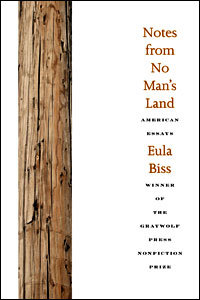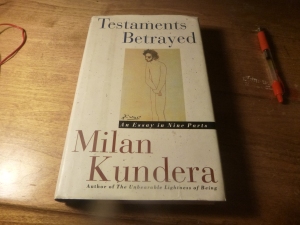Given recent electoral outcomes, reading essays about American political history probably doesn’t sound particularly appealing, but I found going into This American Life regular Sarah Vowell’s back catalog to be very refreshing. She writes with a casual persona, a conversational tone that communicates her obsessiveness and fascination with both self-awareness and contagious enthusiasm.
The Partly Cloudy Patriot is a celebration of nerdishness, written at a time before that kind of thing had been so widely co-opted to pander and to sell sitcoms and t-shirts. There’s a sense of guilty revelry at play -the delight Vowell clearly feels in immersing herself in the historical remnants of upsetting episodes in history are contextualized but never dismissed. The essays are informative, but couched in a sense of personal experience that keeps them from getting overly dry. I’m a big fan of this particular strategy in nonfiction, especially in travel writing.
I’ve got some conflicting thoughts on the place of essay collections in 2016, in the world of aggregated longform essays and creative nonfiction. One one hand, I feel like my time is better spent casting a wide net, reading a diverse selection of authors writing on a diverse selection of topics. But, for the same reason I like short story collections, I like getting inside and inhabiting one specific writer’s brain over the course of a few small pieces. I’m not sure how much of that is coming from my own writerly inclinations to observe other writers’ voices in depth and how much it has to do with simply valuing an accurate and close reading of somebody else’s lived experience, but there you go.


